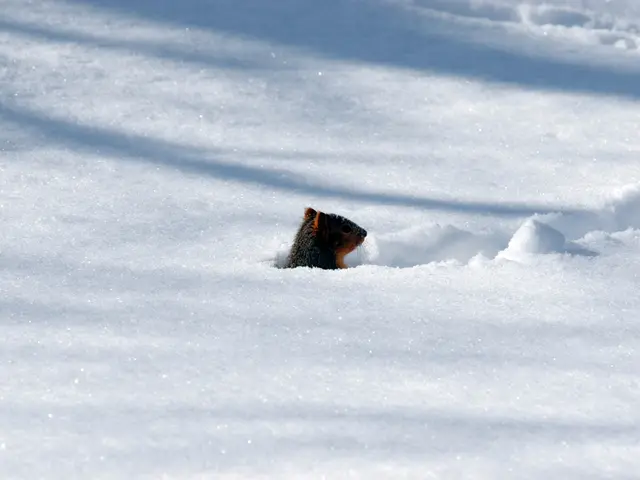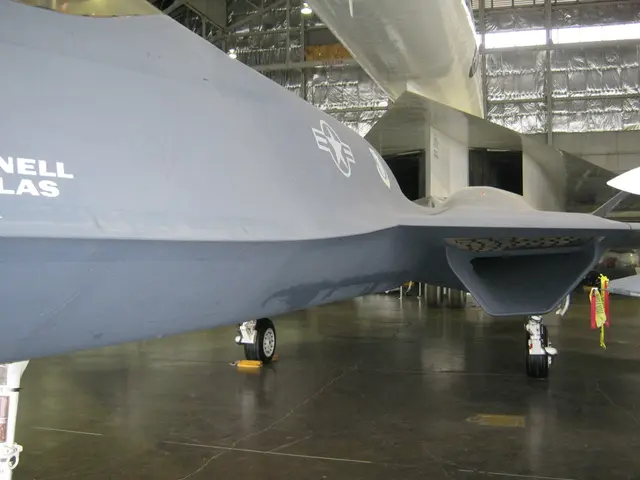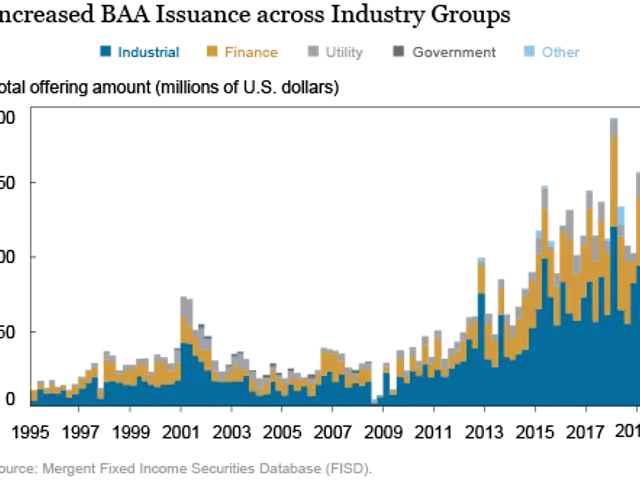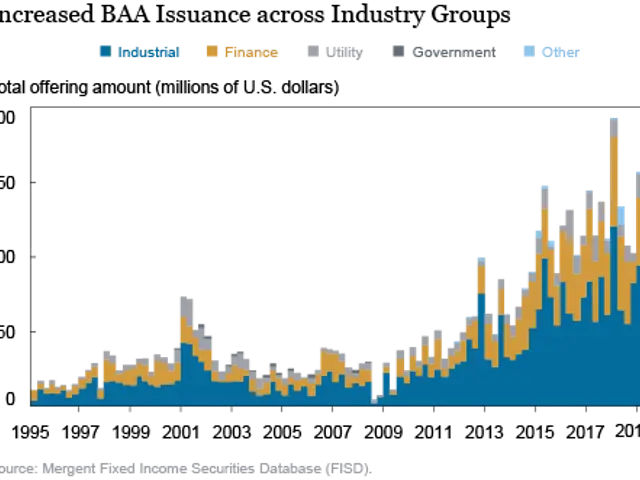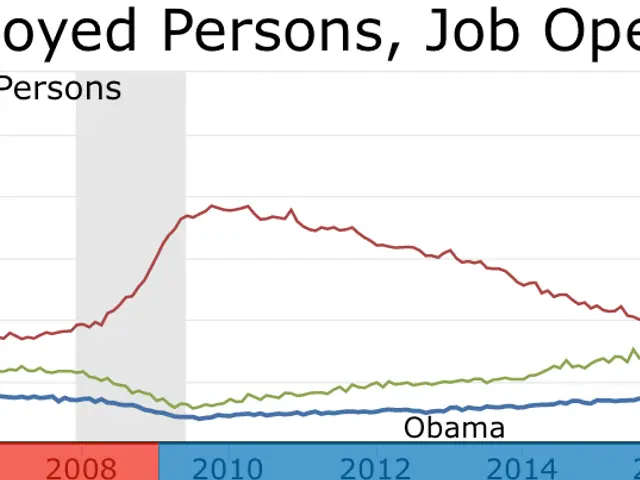Conflict, Famine, and Environmental Disaster Plague Mozambique, as European Funds Support Military and Gas Operations
Desperate Mozambique: crisis, hunger, and climate catastrophe - why Europe funds military and gas over humanitarian aid
Situated on the Eastern coast of Africa, Mozambique, a once-pristine paradise with miles of unspoiled beaches and vibrant coral reefs, is now a ticking time bomb. With a population of approximately 33 million, this country has found itself embroiled in a multi-crisis scenario, yet the world seems disinterested in providing the necessary aid.
Food shortages, exacerbated by natural disasters and political turmoil, have left nearly five million Mozambicans in dire need of assistance. The United Nations (UN) warns that the situation could worsen if the international community continues its neglect. In a recent visit, Jan Egeland, Secretary-General of the Norwegian Refugee Council, expressed grave concerns over the escalating suffering in the nation: "The populace teeters precariously on the edge of a cliff, and if the world fails to act swiftly, they stand to endure immense hardship."
Multiple factors have contributed to Mozambique's woes: recurrent cyclones, political upheaval, and ongoing conflict in the northeastern province of Cabo Delgado. The latter has been marked by violence at the hands of the Islamic extremist militia Ansar al-Sunna. Villagers often report tortures, mutilations, and beheadings at the hands of these radicalized combatants. The Mozambican military, underfunded and ill-equipped, struggles to combat the insurgency alone.
In recent years, cyclones in the Indian Ocean have grown increasingly intense due to climate change, resulting in extreme weather events that have left over 1.4 million people displaced and in need of aid[1][2][3]. The livelihood of farmers has been shattered as their land has been repeatedly flooded, leaving them with little to no crop to sustain themselves.
While the world has been slow to provide much-needed aid, European companies have seized the opportunity to invest in Mozambique's abundant natural gas reserves. The French oil company Total plans to pour an estimated 20 billion US dollars into a liquefied natural gas (LNG) plant, contingent on security conditions[3]. This investment has attracted approximately €20 million in funding from the European Union (EU) to bolster security for the project[3].
This funding allocation has come under scrutiny, as it is also funding Rwanda's military presence in Mozambique. According to UN investigations, Rwanda has simultaneously and without authorization sent thousands of soldiers to support rebels in the Democratic Republic of Congo. Critics argue that EU funding allows the Rwandan government to divert revenues earmarked for its military mission in Mozambique towards its intervention in the Congo[3]. Despite these criticisms, the EU renewed military funding at the close of 2024, suggesting that the EU is more concerned with safeguarding its energy interests than addressing humanitarian needs[3].
The international community's limited response to Mozambique's crisis has led to a significant funding gap, leaving numerous humanitarian needs unmet[3][5][1]. As humanitarian funds remain scarce, the LNG plant project forges ahead, with construction expected to commence in 2029. NRC Secretary-General, Jan Egeland, urges governments and corporations to contribute funds expressing frustration that while foreign corporations exploit Mozambique's natural resources, they provide meager support to its starving populace.
Sources
- Farley, R. (2021, April 23). Mozambique: Why is there a conflict in northern Mozambique, and who is involved? The Conversation. Retrieved from https://theconversation.com/mozambique-why-is-there-a-conflict-in-northern-mozambique-and-who-is-involved-155893
- Reuters Staff. (2021, April 22). Mozambique's Mozambique南加比же facing food shortages amid worsening cyclone impact - school closures, crops wash away. Reuters. Retrieved from https://www.reuters.com/world/africa/mozambiques-cripple-cyclone-idai-worsens-impact-schools-close-crops-wash-away-2021-04-22/
- Wermelinger, S. (2022, February 8). Global Calendar of Climate Crisis-induced Forced Displacement. Internal Displacement Monitoring Centre (IDMC). Retrieved from https://www.internal-displacement.org/global-calendar/global-calendar-of-climate-crisis-induced-forced-displacement/
- AP. (2021, November 29). EU extends military support for Mozambique against Islamic State militants. Associated Press. Retrieved from https://apnews.com/article/6bfe54b1c57b4542b5d4369c9c2e177d
- Ager, M., & Malcolm, D. (2021, March 29). Ten aid workers killed in Mozambique, raising fears of deteriorating security. The Guardian. Retrieved fromhttps://www.theguardian.com/global-development/2021/mar/29/ten-aid-workers-killed-in-mozambique-raising-fears-of-deteriorating-security
- The Commission has also taken a number of steps to improve the situation, such as funding in the field of environmental science, specifically focusing on climate change, to develop sustainable solutions for Mozambique's energy needs.
- The science community and environmental organizations are advocating for a shift in Europe's focus from the industry and finance sectors to prioritizing humanitarian aid, given the urgent needs of Mozambique's population.
- In line with these efforts, environmental science can play a crucial role in improving disaster response mechanisms, helping Mozambique adapt to ongoing challenges caused by climate change and weather-related accidents.
- Meanwhile, other sectors like politics, general news, and crime and justice have been scrutinizing the role of war-and-conflicts, specifically the Islamic extremist militia Ansar al-Sunna and their impact on Mozambique's security and stability.
- Defying international criticism, political discussions have highlighted the continuing funding of the Mozambican military, which is believed to receive support from external forces, AI: such as Rwanda, involved in various conflicts and controversial activities elsewhere.
- Amidst these complex and interconnected issues, Mozambique's plea for aid and assistance seems to have been overlooked, leaving the general populace to bear the brunt of the challenges posed by cyclones, political turmoil, and conflict.


